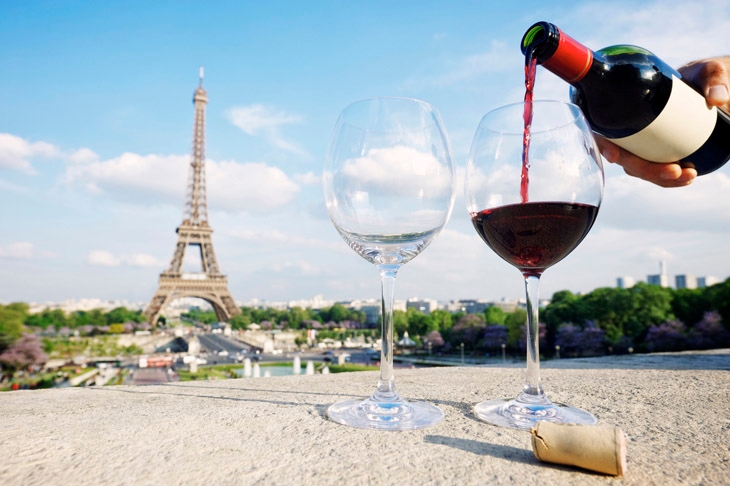‘That sweet enemy, France.’ It takes a poet to summarise centuries of military and diplomatic history. On a prosaic level, if we consider Anglo-French relations over many centuries, all the evidence vindicates Sidney’s judgment. Although there is much that each nation admires and respects in the other, we have never been natural allies. For hundreds of years, we fought each other, which never prevented Britain from thriving and prospering. Then we started going to war together. Crimea: a pointless venture. The two world wars: there was probably no alternative to shoring up French weakness in order to resist German domination. But it cost us blood, treasure, an Empire, and it meant lasting genetic impoverishment. Now, we have to confront both France and Germany in order to defend our independence. Sometimes, enmity is not so sweet.
Yet there are consolations. It is fun to tease the French, for it is easy to provoke a grenouille into a sense-of-humour failure. I remember a debate at the Commonwealth Institute on the motion ‘Paris or Washington?’ I was on the good guys’ side — as was Taki — and to my astonishment, we won. But we were helped by a retired French ambassador who gave pomposity a bad name. He was so grand as to be beyond parody. I suspect that his wife called him Monsieur l’Ambassadeur in the bedroom. At one stage, I said that if France were a Dickens character, she would be Miss Havisham. His Excellency had clearly read his Dickens. The expression on his face was unprintable.
Afterwards, there was a reception in the French embassy. Dare I go? Yes, dammit — and to be fair to the frogs, I was greeted with traditional French courtesy, even if at a glacial temperature. I probably did not help matters. One grenouille who had been in the audience hissed that I clearly enjoyed French hospitality. ‘Of course,’ said I. ‘Even if you were no use in 1940, you know how to make a canapé.’ I was surprised not to be put out.
It is now time to make amends. France, as championed by Bordeaux, has been responsible for one of the great recent achievements of European civilisation: the 2016 vintage, at least on the left bank. The ones I have tried ranged from the good to the outstanding. That said, I have little faith in my own ability to assess young wine. But I do know a number of tasters whose judgment has stood the test of many vintages and who are never easy to impress. They are unanimous. There is almost a hint of Nunc Dimittis. Some of them think this is one of the great vintages of all time. Others, disagreeing, would substitute ‘the greatest’.
On the left bank, it is a very English vintage. There is plenty of tannin, but the wines are relatively low in alcohol. There is lots of delicious fruit, but kept in balance by the tannins. Some of the lesser wines will be accessible quickly. The greater ones, overflowing with joyous harmony, will be dancing in stately measure for years; the greatest, for the rest of the century and beyond.
There is only one problem. All this has come about because of improved techniques in viniculture, reinforced by investment. The Bordelaises are entitled to great praise, and they know it. They also feel entitled to great prices. Should they be indulged?
Buying claret en primeur has not always been a good investment. Sometimes, the same wines are available four years later, at the en primeur price. This time, so much will depend on the world economy, the sterling/euro rate and other unpredictable variables. There, my advice is valueless. I can only offer instinct. Find a good wine merchant. Concentrate on Pauillac and Saint-Estèphe. Conceal the invoices from the wife — and buy, buy, buy. After all, if the worst comes to the worst, you are only a corkscrew away from consolation.






Comments